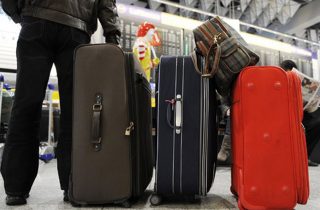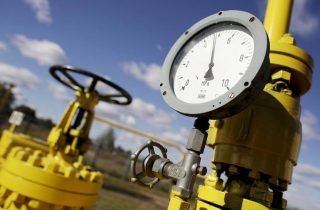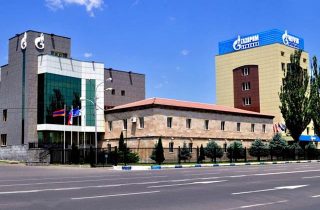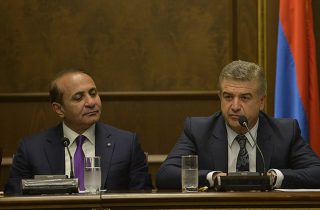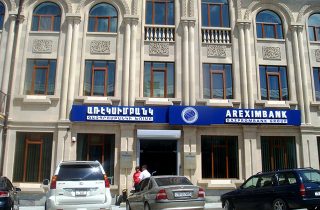Between the Growth and the Trust
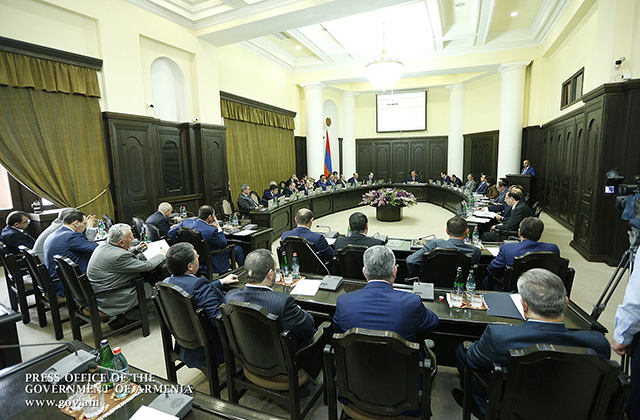
Seizure of the police precinct and events following it throughout the last 2-3 weeks left news on economy in the shadow. Perhaps, only the Government should complain, which didn’t have the opportunity to completely be proud of the results recorded in the first semester.
And there it had points to be proud of. For instance, 4.8% economic activity growth. This isn’t the index of economic growth (GDP), but is too close to it. 4.8% isn’t a bad index on account of 2.2% budget anticipations, and pursuant those of international organizations—1.9%.
8.9% industrial growth isn’t a bad index either. Of course, it’s conditioned mainly by the growth of mining, however, it shouldn’t be forgotten, that amid CIS countries we are the second (Tajikistan is ahead of us with 11.2%).
We succeeded in foreign trade as well—we have a double digit growth regarding export. Import has decreased a bit, however, foreign trade balance has improved. In short, there was much to touch upon.
The Government touched upon it after the surrender of the members of “Sasna Tsrer” group. On August 2 at a meeting with those responsible for the economic bloc, PM Hovik Abrahamyan covered economic activity growth, particularly highlighting that in 2015 the anti-cycle policy pursued by RA Government and due to in-time and productive reflection of appearing obstacles, this year’s negative shocks have been totally absorbed by our country’s economy, not transmitting them to 2016. The PM also stated that external shocks might have decreased incomes of the population by 20-30% if not the policy pursued by the Government.
Hovik Abrahamyan also stated that economic growth of recent one and a half year has been provided on account of foreign trade. “Which means, that already qualitatively new economic growth is in process, i.e. from economic growth conditioned by internal consumption we record a shift to economic growth guided by production and export,” he stated adding that likewise changes may be symptoms of the start for a long-term transformation of new economy.
The PM reflected once again to economy indices 2 days later, at the Government session on August 4. He introduced the results of the first semester as success.
However, Hovik Abrahamyan made a rather noteworthy statement, which was an indirect confession, that growth indices, at large, mean nothing. “Unfortunately, growth of the last year and a half wasn’t accompanied with rise in well-being. We should do our best to make economic growth inclusive, so that any member of the society felt changes in his/her living standards,” he said.
We may say, that this is a step forward, i.e. the Government started to accept that it has no connection with either 3% or 30% economic growth. It’s much more important, that the society felt it.
What should be done to reach it? The PM touched upon it as well, economic challenges should always be in the center of attention to neutralize them consistently and in a systemized manner. Great attention should be paid to improvement of internal business environment, reduction of corruption risks, as well as contributing to entrance of Armenian commodities to new markets and strengthening of the positions in existent markets.
We should, we should, we should…really, all “we should”-s are important. However, the most important, which wasn’t covered, is lack of trust.
It’s not low, but we may say, it absolutely lacks. The simplest example is heated discussions on the disseminated photo, then the footage of the sniper. A larger part of the society not only doesn’t believe the statement issued by the Police, but is convinced that the state is able to apply special computer programs to ground its lie.
The society doesn’t trust the Police (the abovementioned was just one of the manifestations of distrust).
And upon the example of the Police the society doesn’t trust state system, all the branches of the authorities. Any statement is issued to the detriment of the society.
The society doesn’t trust the opposition either, in particular, Parliamentary political powers. The society doesn’t trust media outlets, experts and others. And finally hatred and distrust is found amongst that very society—between the people in the same camp.
In short, we have a serious deficit of trust. Recent developments simply made those issues more apparent and more sharpened that deficit.
And without trust it’s naivety to hope that success may be recorded on economic platform.
This should be considered, or to be more proper, this should have been considered long ago, and particularly after the April war. What happens today hardly contributes to restoration of trust. Unfortunately.
By Babken Tunyan








